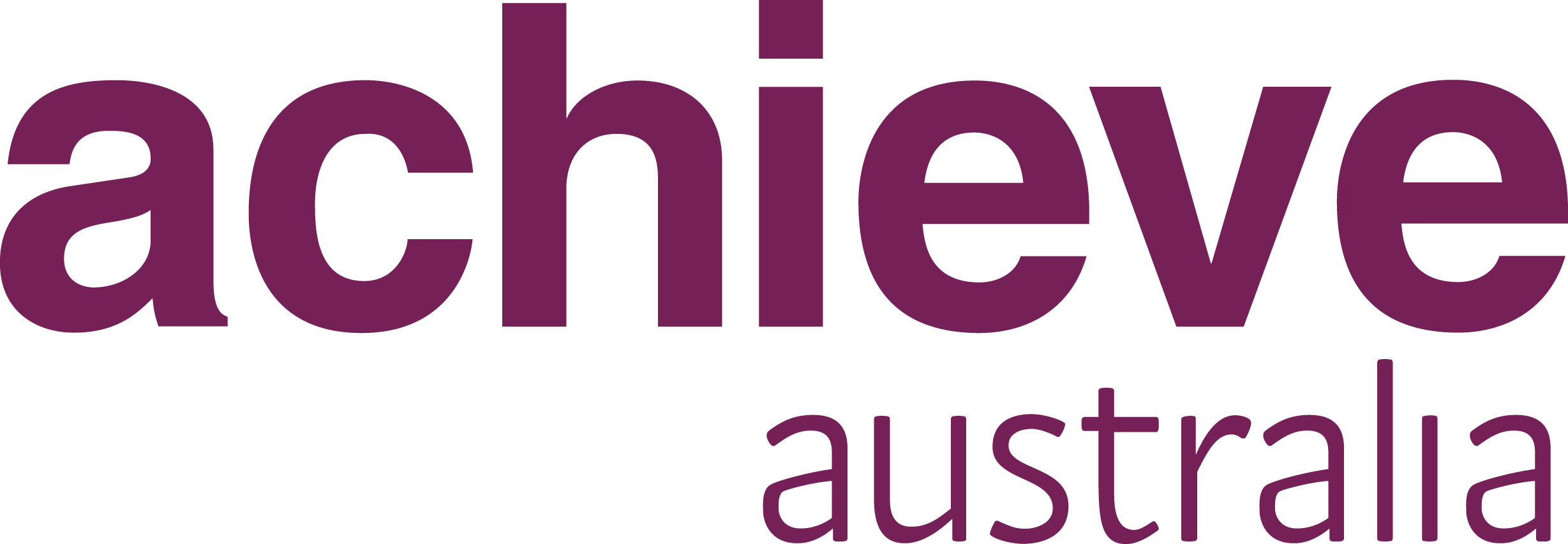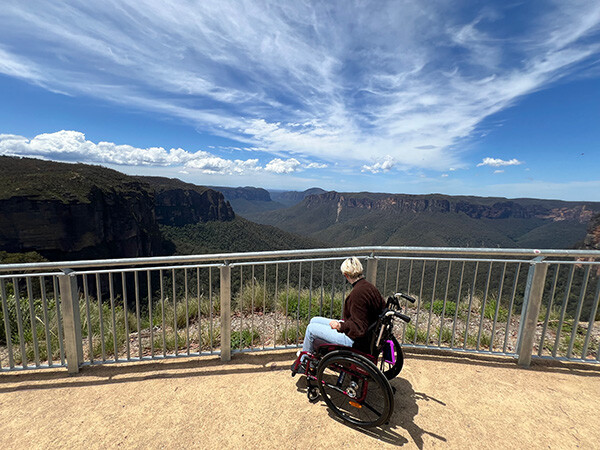By Fiona Bridger, Achieve Australia Researcher and Writer
6 November 2024
People with disabilities (PwD) are significantly more likely to report feeling lonely than the general population according to research. A survey carried out by the UK’s Belonging Forum showed 40% of people living with disabilities experience loneliness, compared to 29% of the general population.
In Australia, disability, social isolation and exclusion, too often go hand in hand. I believe Chair of the National People with Disabilities and Carer Council, Dr Rhonda Galbally said it best in the 2009 National Disability Strategy Consultation Report.
“For many years people with disabilities found themselves shut in – hidden away in large institutions,” Dr Galbally wrote. “Now many people with disabilities find themselves shut out – shut out of buildings, homes, schools, businesses, sports and community groups. They find themselves shut out of our way of life.”
People with disabilities are often lonely in the community because society thinks that they should only mix with other PwDs. PwD need to be included in a variety of social groups because, if they just stay with their own groups of people, they are living separate to society rather than within it. This is not to say that some people like to be involved with people who share similar disabilities and experiences to them.
Day Programs vs Social Groups
From childhood, people who live with disabilities are usually encouraged to socially interact either through attending day programs and or joining social groups. There is a significant difference between them, but both offer benefits.
A day program is typically held in a formal, organised setting where individuals with disabilities attend on a regular basis (daily or several times a week). It usually has a structured schedule with set activities and goals.
Day programs are specifically designed to cater to the unique physical, intellectual, and emotional needs of individuals with disabilities. This can include customised schedules and activities based on the abilities and goals of each participant.
The goal of this service is often to provide care, skill development, therapy, and socialisation. Programs can also focus on enhancing independence, vocational training, or life skills. Activities can include art, physical therapy, cooking, music therapy, or job training. These programs are often designed with specific outcomes in mind, such as improving daily living skills or preparing for work.
Achieve offers more than 90 different programs at locations in Sydney and the Northern Rivers region of NSW. The benefits for PwD are that, for those who require support with either developing skills or community engagement, they can be assisted in doing this.
Day programs can be ideal to build skills and engagement however, beyond this PwD need access to social groups.
Social groups are typically less formal, and less rigid in structure. Activities and schedules are often flexible, adapting to the interests and preferences of those taking part rather than following a strict plan.
Members typically have a say in choosing activities and social events. They may meet weekly, monthly, or at specific intervals, and attendance is voluntary. These groups focus on social interaction, friendship-building, and shared interests with the main goal to foster inclusion and provide opportunities to connect and engage socially. For example, book clubs and toastmasters. Rotary clubs can be a way to join social clubs to bring together people across generations and abilities.
Sports and catering to PwD
While there are many sports that offer accessible activities, the challenge in my experience is that businesses believe one size fits all when it comes to PwD.
Anecdotally, I love social activities such as sailing, however, the business organising sailing had a program set up for disabilities that assumed each PwD was the same. Depending on the disabilities the person has, completely different needs and outcomes are needed in their social life. The business assumed that I couldn’t be taught how to drive the sailing boat and wouldn’t teach me how to sail.
I wasn’t able to learn how to sail as I wanted to and thus am unable to go further in this lovely sport or meet others who love sailing, with or without a disability. I loved being out on the water and the freedom it gave me.
PwD are diverse
Just because we all have a disability it does not mean that we all get along, have things in common or have the same abilities.
A group of people with a disability can be as diverse as any other group. Attitudinal barriers a business has, can be reduced through direct interaction with PwD themselves. Communicating directly with customers with disability will help a business identify barriers to the offering.
PwD do not want to be segregated or isolated from social and sporting groups. They want to be included, and live fulfilling, dignified lives contributing to their local community.
A more socially inclusive Australia will raise everyone’s standard of living and enrich everyone's life.
Explore more topics
- Accessibility
- Achieve Australia
- inclusion
- disability
- belonging
- Community
- Employment
- Advocacy
- The Sewing Basket
- Accessible
- disability employment
- My Life My Say
- Celebrating people we support
- NDIS
- 2022
- Guildford
- Meet our Achievers
- blog
- people with disability
- travel
- women with disability
- Art
- Australia
- COVID-19
- Disability services
- Good nutrition
- Health tips
- Mental wellbeing
- NDS
- Sharing milestones
- Sydney
- achievable
- assistance dogs
- depression
- disability communications
- disability inclusion
- election
- employee of the year
- intellectual disability
- motherhood
- pregnancy
- social inclusion
- support workers

